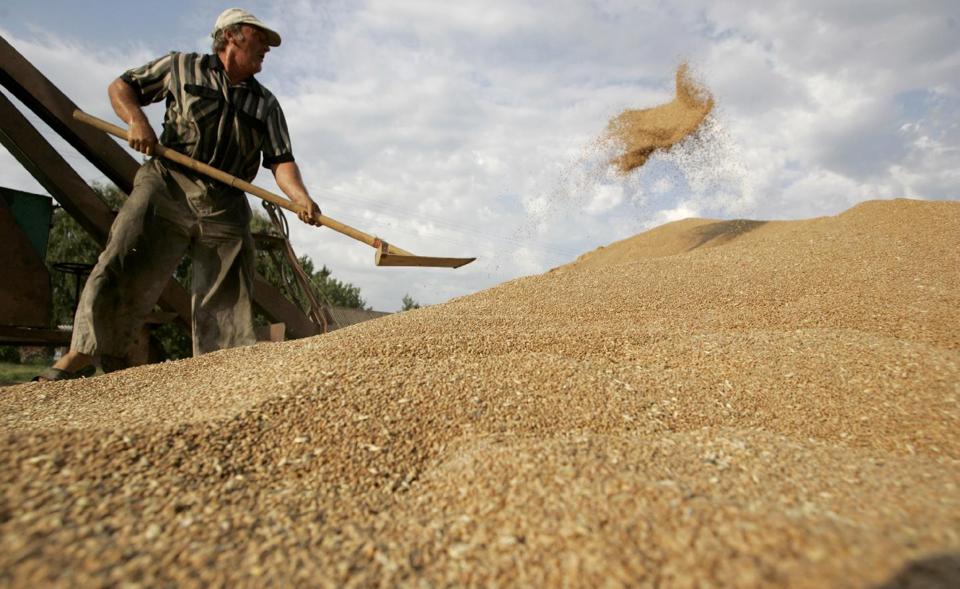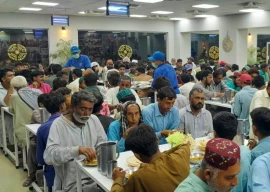
The government said the customs barrier on exports was to ensure its own food security as the currency crisis bites.
The announcement drove global grain prices up, but analysts said ample world stocks of wheat and corn should keep it from spiking.
The tumble in the value of the ruble by abound 50% this year has made exporting grain far more profitable for Russian farmers and, despite one of the best harvests on record, domestic wheat prices have started to soar.
“We had a good harvest but at the same time, due to the volatility of the ruble, prices are very advantageous and exports have risen considerably,” Prime Minister Dmitry Medvedev said at a government meeting.
“We need to have minimum reserves that assure Russia’s food security. In this context I think it is time to reflect on administrative restrictions on exports,” he added.
The measures could be signed by Medvedev within 24 hours, deputy prime minister Arkady Dvorkovich was quoted as saying by Russian news agencies.
Dvorkovich said Russia has exported 21 million tonnes of grain since July out of a potential annual total of 28 million tonnes. Russia harvested 104 million tonnes this year. Wheat prices climbed in European trading following the announcement.
Around 1130 GMT on Monday wheat for delivery in January gained 2.25 euros to 198.25 euros per tonne in heavy European trading, while the March price rose 2.50 euros to 199.75.
Wheat prices already jumped more than four percent last week on the Chicago exchange as traders feared that Russia, usually the world’s number three grain exporter, might impose an export ban as it did in 2010 when it suffered a poor harvest.
“The market had already anticipated ... informal restrictions. Now they are formal,” said Sebastien Poncelet, an analyst with the French consultancy Agritel, describing heightened “tension and volatility” in grain trading.
“Now there are two possibilities: either it will be a total restriction or a partial restriction that would exclude...Russia’s two main customers, Egypt and Turkey, as well as India and Armenia,” Poncelet told AFP.
The restrictions could lead to a shortfall of up to seven million tonnes of wheat on the world market if it was a total ban, he said.
Still, the moves will not necessarily cause a sharp spike in prices because buyers could turn to corn, which is in great supply, he said.
Russian authorities denied last week they were considering an export ban, but there were indications that the government may have been trying to slow exports to keep the politically sensitive price of bread from soaring.
According to Russian media, the veterinary and agricultural service has been issuing only a small percentage of the export certificates it normally does, without providing any official explanation.
And the national railway company informed exporters that it is cutting back on grain shipments because of circumstances beyond its control, again without providing an explanation.
Published in The Express Tribune, December 23rd, 2014.
Like Business on Facebook, follow @TribuneBiz on Twitter to stay informed and join in the conversation.





























1714024018-0/ModiLara-(1)1714024018-0-270x192.webp)









COMMENTS
Comments are moderated and generally will be posted if they are on-topic and not abusive.
For more information, please see our Comments FAQ